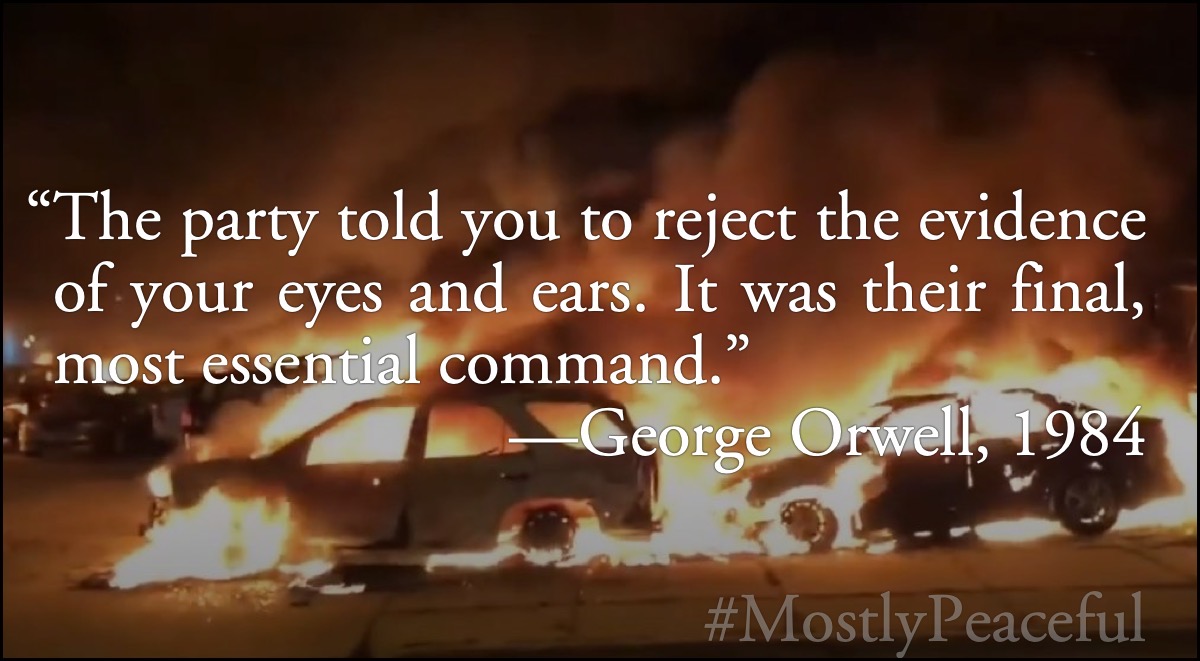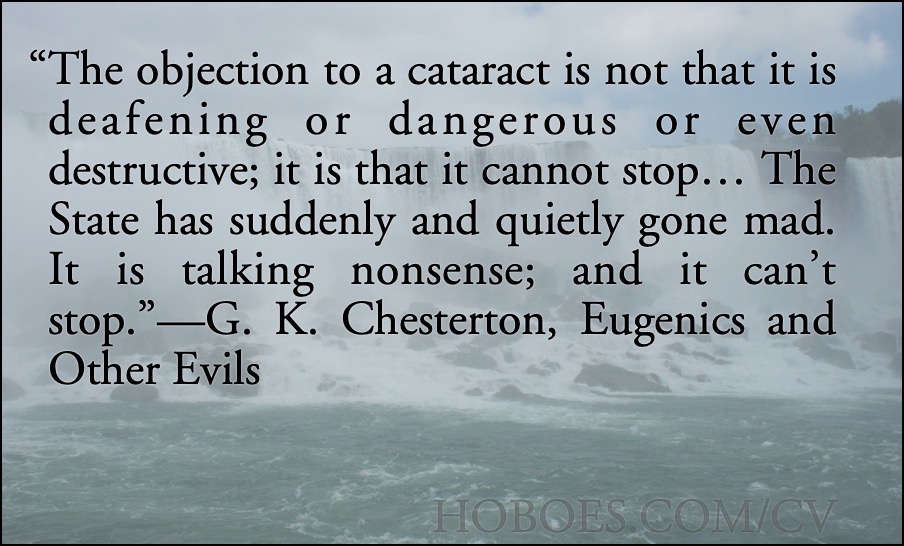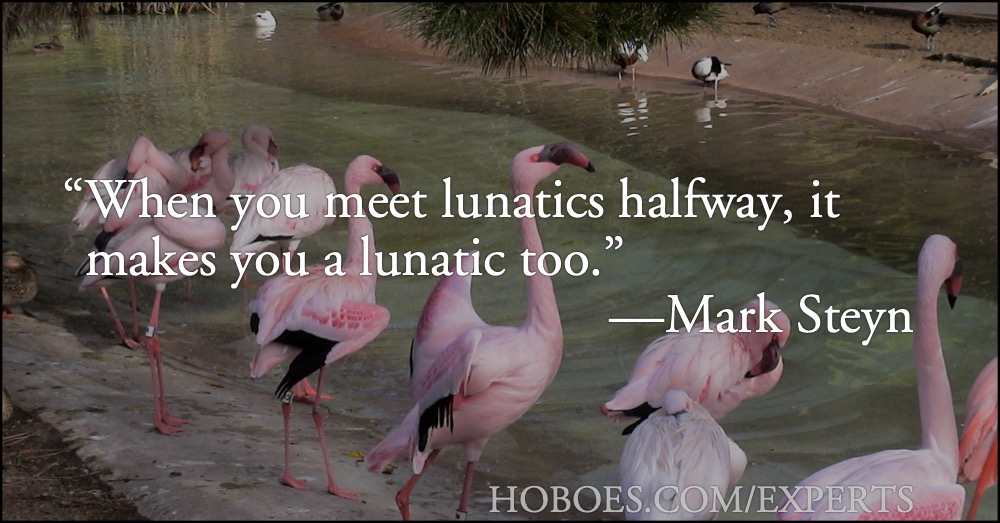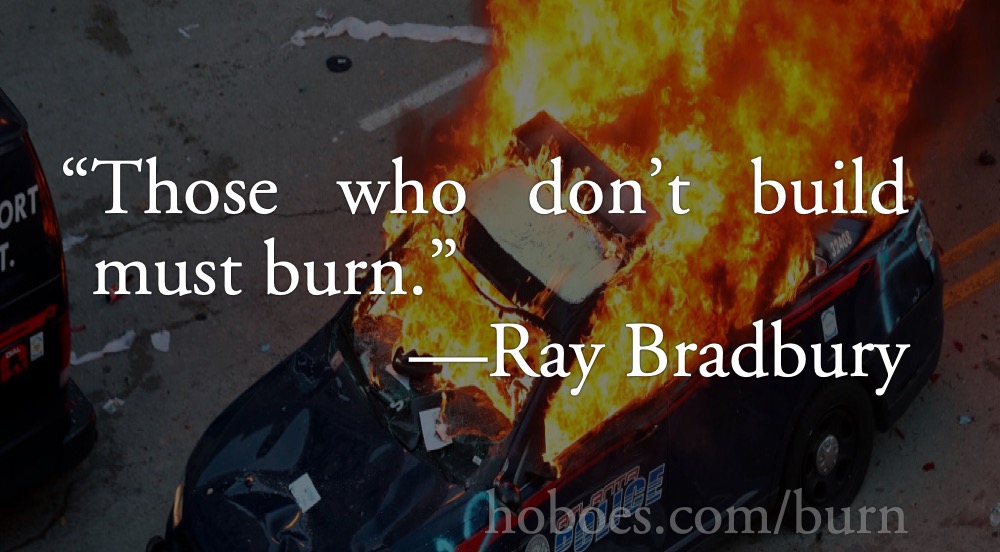COVID Lessons: Journalistic Delusions and the Madness of Politicians
In 1979, Canada was blessed with a total solar eclipse. As astrophiles in the Great White North prepared for totality, public officials in Manitoba panicked. Children, they worried, might go blind if, enthralled by their first solar eclipse, they gazed too long at the sun. The Winnipeg Health Department wrote the Manitoba Medical Association for advice, and received this response:
The Section of Ophthalmology of the Manitoba Medical Association strongly advises that the only safe method of viewing the sun, especially in eclipse, is to watch it on television. No other means is completely reliable… Nothing short of 100 percent foolproof protection is called for when the stakes are as high as permanent loss of vision. Again, the M.M.A. Section of Ophthalmology advises that the eclipse of the sun should only be viewed on television. This position is also endorsed by the Canadian Ophthalmological Society.
Emphasis mine; their response was, of course, a bureaucratic response and not an educational one balancing between risk and a rare-in-a-lifetime opportunity. In a sense their initial conclusion wasn’t their fault: they were asked for a medical opinion. They were not asked, nor where they qualified to comment on, the educational benefits of an eclipse, or the justifiable excitement of glimpsing a rare astronomical event. On the other hand, their conclusion—“the eclipse should only be viewed on television”—goes well beyond a medical opinion and into policy.
The schools decided that extreme measures were necessary to keep children from experiencing their first eclipse:
(1) …care must be taken to have all students indoors before the eclipse begins; (2) arrangements will have to be made to keep students in school until about 12:05 P.M.; (3) blinds and/or drapes will have to be lowered or drawn over windows facing the sun to prevent accidental exposure during the eclipse; (4) all staff have the responsibility of doing their utmost to protect students at school from possible injury, according to the advice given to us by the City of Winnipeg Health Department and the Manitoba Medical Association.
But what if there’s an emergency other than a killer eclipse, such as a fire?
When the alarm sounds the classes will remain in their locations or rooms and await further instructions.
Winnipeg went from don’t look at the sun, to mask the windows, to lock down the children, to it’s better to risk death in a fire than risk seeing the eclipse. That’s our COVID-19 response—not a reasoned response that balances varying risks, but instead descends into madness. If children had died of fire or smoke inhalation, well, it wouldn’t have counted as an eclipse-related death, and the bureaucrats would have congratulated themselves on all the eyes they saved, without having to count the deaths they caused.
There’ve been a lot of memes about how strange 2020 has been. But the fact is, 2020 itself hasn’t been much, if any, different from any other year. What’s been different is our reaction to it. From AIDS to avian flu to Ebola there have always been strange diseases. There have always been killer bees and infectious mosquitos. There have always been woke racists, at least since the sixties, trying to start race wars through violence and lies.
What’s different—what marks this as a classic mass delusion—is the worldwide manipulative response that’s still killing people. What marks it as a witch craze is blaming the deaths caused by the response on those questioning the response. What marks it as a period of madness is giving woke racists control of the streets—or entire neighborhoods to terrorize—and then blaming the violence on law enforcement. In the past, such madness has been localized—a city here, a state there.
In 2020, instead of reacting sanely our entire country and much of the world reacted like the Winnipeg schools in 1979. We increased, rather than decreased, the risk of death and injury by a response that crosses the line well into madness and delusion.
The other installments in this series have focused on, what if we get hit with an epidemic, or any crisis, that really is as bad as they’d said COVID-19 was going to be? How can we respond to it without multiplying the deaths as we did to COVID-19?
But it’s just as important to think about what we’re going to do the next time power-hungry fanatics decide to destroy people’s lives, kill their grandparents, and shut down the jobs, distribution networks, the products and services, that save countless lives every day.
Because it will happen. When politicians see a successful power grab, they keep using it. The next COVID-19 will be automobile accidents, or buying drinks—alcohol or sugar—or a slightly higher-than-average flu. A hurricane in the next state over or people disagreeing with power-hungry politicians who want to stop you from buying Dr. Pepper. And that’s assuming they even bother with another excuse. Fifteen days to slow the spread passed over six months ago. Very few politicians understand science and medicine, but they all understand power and political theater.
Hiding from the wrath of the sun god is superstition. Sheltering in place until the angel of death passes over is superstition. The last ten months have been pure barbarism in its most literal sense: a regression away from civilization to superstition and madness. Civilization is conquering nature when it attacks. Victory requires not wasting our resources on delusions.

Other people’s lives were denigrated as mere economics. Reasoned responses were attacked as favoring efficiency over people’s lives. But efficiency is nothing more than other people delivering quality products and services quickly at low costs. To rail against efficiency in health care is to deny people quick, quality care. To rail against efficiency in our food chain is to be against good food at low prices when we need it. Government cannot provide efficiency. It can only get in the way. The politician-imposed destruction of our economy meant shortages of food, supplies, and care.
In a time of madness, the first guess of experts is often wrong. The first guess of experts filtered through a biased media is always wrong.
In a speech to the International Leadership Forum in 2002, Michael Crichton quoted physicist Murray Gell-Mann on our inability to judge the reliability of media experts:
Briefly stated, the Gell-Mann Amnesia effect works as follows. You open the newspaper to an article on some subject you know well. In Murray’s case, physics. In mine, show business. You read the article and see the journalist has absolutely no understanding of either the facts or the issues. Often, the article is so wrong it actually presents the story backward—reversing cause and effect. I call these the ‘wet streets cause rain’ stories. Paper’s full of them.
In any case, you read with exasperation or amusement the multiple errors in a story—and then turn the page to national or international affairs, and read as if the rest of the newspaper was somehow more accurate about far-off Palestine than it was about the story you just read. You turn the page, and forget what you know. — Michael Crichton (Why Speculate?)
So much of our news media during this crisis relied on Gell-Mann Amnesia to lie to us. Too much of the news relied on us not trusting what we could see with our own eyes. We have to remember that bureaucrats speak a different language than the rest of us. For example, in my circle there were a lot of people complaining that important tests and even surgeries they had already scheduled had been cancelled. As the shutdown went on, they got more and more worried. When they voiced their worries on Facebook, other acquaintances would tell them, you must be misunderstanding, or, your doctor must be a bad doctor because obviously your care isn’t elective. And it wasn’t—in English. But in bureaucratese, elective means “can it be scheduled”. If it can be scheduled, it is elective. That covers a lot of very necessary care.
Lawmakers and bureaucrats love to use words incorrectly to hide the insanity of their policies, and the media uses this to further their lies.
Breaking us into essential and nonessential was more insidious. It divided people at a time when we needed to come together. Even that term was hijacked. Almost everyone using the term “we are all in this together” was using it to further divisiveness, to shut down voices of reason amidst the madness.

Anyone who pronounces against the death sentence is reasonably suspected of complicity; no one is to urge the judges to desist from the prosecution; nay it is an indicium of witchcraft to defend witches, or to affirm that witch stories which are told as certain are mere deceptions or illusions. — Martin Antoine Del Rio (The Encyclopedia of Witchcraft and Demonology)
In a witch craze, those who question the “witch stories” are attacked for not wanting to save lives—attacked by the very media and politicians who are causing real deaths. We must learn to recognize when bureaucrats and the media are promoting another witch craze. Our bureaucracies, from the WHO to the CDC on down, lied to us from the start. They lied about wearing masks and then about not wearing masks. They passed on lies about it not being contagious at all and then about it being super-contagious. They lied about how deadly it was, about who it affected, and about how to treat it. They spread their lies through direct news and through social media.
They lied for political purposes. They lied for our own good. And sometimes, I think, they lied just to keep in practice and see how many lies we’d accept.
At every turn, they lied about the risks of the virus, of the shutdown, of masks and distancing.
Among people fighting against the madness, one common analogy is that, for example, we could drop the speed limit to 15 miles an hour and that would save a lot of lives but we don’t do it because the tradeoff with time lost would be crazy. Which is true. But that’s not the reason it’s a bad idea.
The reason it’s a bad idea is because when we drop the speed limit too low in order to save lives, we also kill people. Driving at speeds lower than the natural speed for a roadway ties up people’s attention on speed rather than safety, causing more accidents. First responders cannot get through traffic when cities drop the speed limit too low, because too-low limits cause jams. This actually happens right now. There are cities right now prioritizing one kind of traffic death over other other kinds of traffic deaths and over life-saving first-responders who require efficient roadways.
We could completely shut down the roads and traffic deaths would drop to nearly zero. But deaths due to not being able to use the roads would skyrocket. They just wouldn’t be counted as traffic deaths.
The same has been true of of the media’s, and the bureaucrats’, and the politicians’ lies about COVID 19. Their response to reason is to double down on madness—and more unnecessary deaths. Anyone who questions the madness of shutdowns, the madness of violence, is accused of complicity. We are living through another witch craze; the only way to stop the killing is to end the madness.
In response to COVID Lessons: The Health Care Shutdown: It’s fortunate that COVID-19 was not as bad as the experts said, because our response was almost entirely to make the problem worse. We shut down everything that could help, including health care for co-morbidities. We locked the healthy and the sick together, and cut people off from routine care. Most of the deaths “from” COVID-19 were probably due more to our response than to the virus itself.
extraordinary delusions
- Fahrenheit 451•: Ray Bradbury (paperback)
- Ranks up with Animal Farm as one of the best social satires in the English language. “Guy Montag is a book-burning fireman…”
- It’s Looking Like Sweden’s Herd Immunity Strategy Worked: Jazz Shaw at Hot Air
- “Among Sweden’s population of ten million, they currently have a total of 14 people in ICU beds fighting COVID. In the past two weeks, they have reported 30.3 new COVID-19 cases per 100,000 people. By comparison, Spain is at 292.2 and France reports 172.1. That’s a rather startling difference.” (Hat tip to Ace at Ace of Spades HQ)
- The Marriage of the Sun and Moon
- Andrew Weil’s Marriage of the Sun and Moon is a fascinating, if extra-ordinarily non-rigorous, journey through contrasts and consciousness. Andrew Weil.
- A Powerful Case By Law Enforcement For Safe And Realistic Speed Limits at National Motorists blog
- “As shown in Figure 2, Speed Studies, the 85th percentile speed actually decreased from 73 mph to 72 mph when the posted limit was 15 mph higher.”
- ‘Don’t look or you’ll go blind!’: The total solar eclipse of 1979: Chris Rutkowski
- “That of course caused the mild eclipse panic that saw many parents keep their children home from school that day, lest they be blinded by the ominous event. ‘Don’t look directly at the sun!’ shouted the headlines.”
theater
- Change Change Change: Sarah Hoyt at According To Hoyt
- “So, who had ‘Atlantis rises’ on their 2020 bingo card?”
- COVID Lessons: The Health Care Shutdown
- It’s fortunate that COVID-19 was not as bad as the experts said, because our response was almost entirely to make the problem worse. We shut down everything that could help, including health care for co-morbidities. We locked the healthy and the sick together, and cut people off from routine care. Most of the deaths “from” COVID-19 were probably due more to our response than to the virus itself.
- Hot Mic: PA Gov. Wolf and Elected Crony Laughing About Masks as ‘Political Theater’: Megan Fox at PJ Media
- “Wolf is heard telling Ullman he’s going to take off his mask to speak while Ullman responds that she’s going to keep hers on for the cameras to make sure people see her in it. ‘I’m waiting so we can do a little political theater,’ she says, laughing. ‘So it’s on camera!’”
More crisifying
- COVID Lessons: Don’t trust socialists
- Our response made the virus worse. We trusted self-styled experts, failed models, socialists, and the media over what we could see with our own eyes.
- Deadly Perfection
- Whenever the left wants to devalue someone’s life, they call it economics.
- Can the president take responsibility for market rises?
- If the president gets blamed when the market falls, can he take credit when it rises?
- Crisis quote of the day
- Congress: if you aren’t willing to go broke, we’ll go broke for you.
- What does 1.2 trillion dollars buy?
- What can you get for 1.2 trillion nowadays? How about two and a half years of no employer-side payroll taxes?
- Three more pages with the topic crisifying, and other related pages
More extraordinary delusions
- The Modern Lobotomy: Whitewashing Child Mutilation
- Child mutilation in the service of gender quackery is something that future generations will look back on in horror, much as we today look back on the lobotomy.
- It’s a mad, mad, mad, psychotic world
- It was once a sign of witchcraft to deny that witches exist. Today, it is a sign of madness to point out the madness of our COVID dogma.
- COVID Lessons: The Health Care Shutdown
- It’s fortunate that COVID-19 was not as bad as the experts said, because our response was almost entirely to make the problem worse. We shut down everything that could help, including health care for co-morbidities. We locked the healthy and the sick together, and cut people off from routine care. Most of the deaths “from” COVID-19 were probably due more to our response than to the virus itself.
More Lessons from COVID-19
- COVID Lessons: The Health Care Shutdown
- It’s fortunate that COVID-19 was not as bad as the experts said, because our response was almost entirely to make the problem worse. We shut down everything that could help, including health care for co-morbidities. We locked the healthy and the sick together, and cut people off from routine care. Most of the deaths “from” COVID-19 were probably due more to our response than to the virus itself.
- COVID Lessons: Shutting down innovation
- Our response to COVID-19 was almost entirely to make the problem worse. We shut down everything that could help, and when people started thinking up ways to neutralize the virus’s spread, we shut them down, too. We actually fined people for innovating means of continuing to work safely; and of course we told everyone to shut down but still pay your taxes.
- COVID Lessons: Government Monopolies are Still Monopolies
- Our response to COVID-19 was almost designed to make it worse. We shut down the nimble small businesses that could respond quickly, and relied almost solely on large corporations and the government monopolies that failed us, because they are monopolies.
- COVID Lessons: Don’t trust socialists
- Our response made the virus worse. We trusted self-styled experts, failed models, socialists, and the media over what we could see with our own eyes.
- COVID Lessons: How can we respond to a disease before it spreads?
- How can we make ourselves less vulnerable to sudden epidemics, before they become epidemics, and without causing epidemic levels of deaths?
More media bias
- The ruling class’s unexpectedly old clothes
- I recently ran across early use of “unexpectedly” for a conservative’s strong economy, referring to the early 1981 market recovery under President Reagan.
- How many fingers, America?
- The Orwellianization of the left continues.
- Has Trump forced the media into a Kobayashi Maru?
- The Kobayashi Maru is that the media wants to be able to continue lying and be believed. People don’t distrust them because of Trump. People distrust them because they keep lying. It is a self-caused problem.
- The institutional forgetfulness of the press
- We no longer have to rely on the press as our institutional memory. The Internet has made it harder for the left to pretend the past doesn’t exist, or to say one thing here and another there.
- How the left transformed vulgarity into courage and elected Donald Trump
- When you lose to Donald Trump, look inward, because it isn’t Donald Trump’s fault. The establishment left, especially the media, attacked Donald Trump just like he was Joe the Plumber. But Donald Trump has the platform to attack back. Doing so took courage, and the Plumbers of America recognized that.
- 34 more pages with the topic media bias, and other related pages


